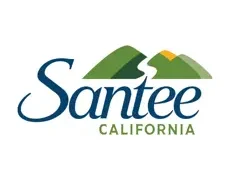
Assemblymember Ward speaks with a constituent at the 41st annual Adams Avenue Street Fair. (Photo courtesy Office of Assembly member Chris Ward)
I’m your representative Chris Ward and I want to bring you up to date on the latest for the month of September.
END OF SESSION
With the end of session, I wanted to go over my bills that were passed.
Governor Newsom signed AB 223, the Transgender Youth Privacy Act, which aims to protect the privacy of transgender youth by requiring any petition for a change of gender or sex identifier filed by a minor to be kept confidential by courts. AB 223 protects youth from being outed and bullied so they can navigate their daily lives as themselves. Many of our documents in this day and age have become digitized and easily accessible to those who would do these youth harm. This bill will ensure transgender youth are able to decide when and how they wish to share their personal information with their peers. Under existing law, parent authorization is required for changing vital records for those under 18 years of age unless a court has emancipated them. AB 223 does not change the petition process. The Transgender Youth Privacy Act is focused to ensure those documents are sealed from general public discovery.
I am also pleased to announce that my bill AB 30 was recently signed into law. AB 30 will broaden the atmospheric river program administered through the Department of Water Resources to connect reservoir and flood control operations with best practices in prediction modeling to optimize water management, increase storage, and reduce flood risk. If you’re unfamiliar, atmospheric rivers are storm systems capable of bringing moisture from the tropics near Hawaii over to the U.S. West Coast and are responsible for about 30 to 50% of annual precipitation for states along the Pacific Ocean. This law will help our water managers be better prepared for the future and help California mitigate the effects of climate change.
Larger vehicles like SUVs are disproportionately likely to injure or kill pedestrians, according to a 2020 study by the Insurance Institute for Highway Safety. Vehicles have also been steadily increasing in size and weight since the 1980s, with some models now weighing several thousand pounds. AB 251 became law without a governor’s signature and will allow the California Transportation Commission to study the relationship between vehicle size and injuries. Other things to be studied are the impact of a registration fee based on the weight of vehicle as well as whether higher fees would affect drivers’ behavior. It will also look at how revenue generated from the fees could be used to improve safety features on roads for pedestrians and cyclists, including traffic-calming measures like speed bumps and protected bicycle lanes. At least 13 states already charge weight-based registration fees for vehicles.
AB 302 requires the California Department of Technology to conduct a comprehensive inventory of all high-risk automated decision-making systems being used by state agencies. In a time when artificial intelligence use is at an all-time high, AB 302, passed without Newsom’s signature, ensures government transparency around these systems that may be using artificial intelligence or algorithms to facilitate decisions on public benefits systems. This bill will also complement the recently signed executive order on artificial intelligence by Governor Newsom to study the risks and benefits of using AI technology in California.
CLEARING UP ACA 13 MISINFORMATION
Finally, the Protect and Retain the Majority Vote Act or ACA 13 protects the majority vote, ensuring that special interest groups cannot subvert the will of the people. This measure would require any statewide initiative moving forward that seeks to increase a voter threshold to also be approved by the same higher threshold it is proposing. ACA 13 does not raise taxes, or make it easier to raise taxes. It simply requires a measure that seeks to raise a voter threshold to meet that higher vote threshold. ACA 13 would be put before the voters on the March ballot. The Legislature is not deciding this issue –– California voters will.













Discussion about this post